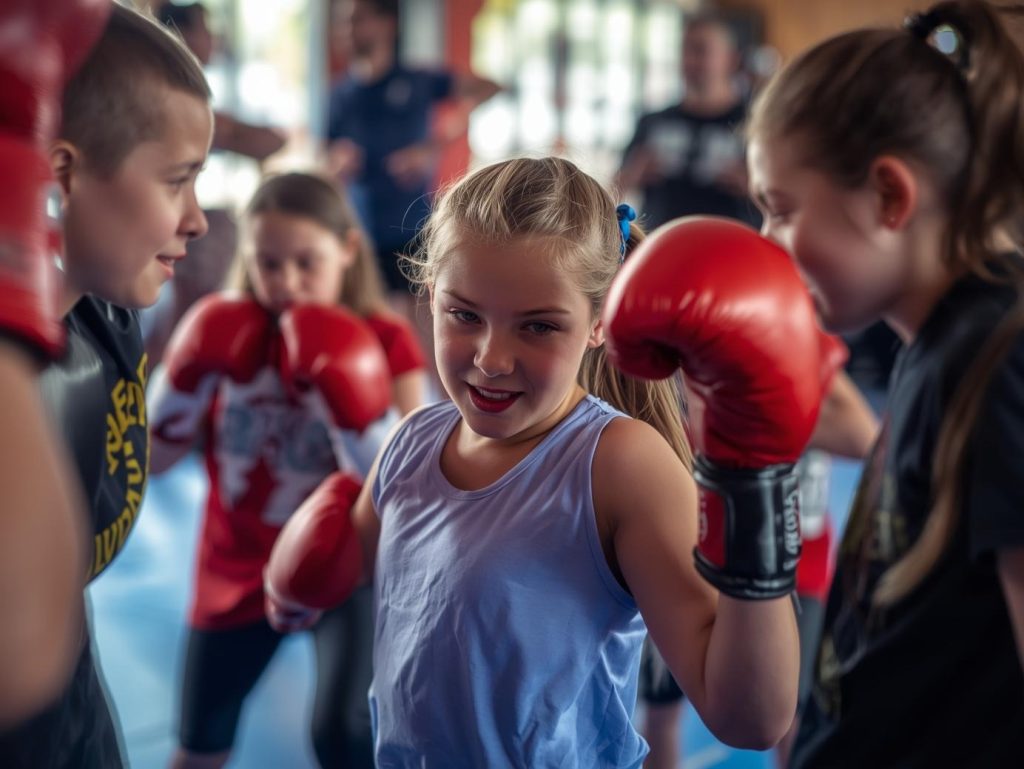
When it comes to finding the right activity for children, parents often look for options that combine physical fitness, mental development, and fun. Kickboxing, a dynamic and engaging sport, is rapidly gaining popularity among children for all these reasons. It’s not just about learning punches and kicks—it’s a holistic activity that promotes growth, confidence, and overall well-being. In this article, we’ll explore why kickboxing is one of the best activities for growing children.
Physical Fitness and Healthy Development
Kickboxing is an excellent way for children to stay active and develop their physical fitness. The sport involves a combination of cardiovascular exercises, strength training, and coordination drills. Regular kickboxing sessions help improve cardiovascular health, increase stamina, and enhance flexibility. Unlike traditional workouts, kickboxing keeps children engaged because they’re constantly learning new techniques and movements. This variety prevents boredom and encourages a lifelong habit of staying active, which is essential for healthy growth.
Boosting Mental Focus and Discipline
One of the standout benefits of kickboxing is its ability to enhance mental focus and discipline. The sport requires children to pay attention to instructions, remember combinations of moves, and react quickly to different scenarios. This level of mental engagement helps improve concentration, memory, and cognitive function. Moreover, kickboxing teaches the value of discipline. Children learn that consistent practice, patience, and perseverance are key to mastering new skills. These lessons translate into other areas of life, including schoolwork and personal development.
Building Confidence and Self-Esteem
Kickboxing is also highly effective in building confidence and self-esteem. As children learn new techniques and see measurable improvement in their skills, they gain a sense of accomplishment. The supportive environment of a kickboxing class encourages positive reinforcement, helping children feel proud of their achievements. Additionally, learning self-defense skills provides an added layer of confidence. Children not only feel stronger physically but also mentally prepared to face challenges, which is invaluable for their overall growth.
Enhancing Social Skills
Participating in kickboxing classes allows children to interact with peers who share similar interests. Group training sessions promote teamwork, communication, and respect for others. Children learn to encourage one another, work together during partner drills, and celebrate each other’s successes. These social interactions help develop essential interpersonal skills that will benefit them both inside and outside the classroom.
Stress Relief and Emotional Balance
Growing children often face stress from school, extracurricular activities, and social pressures. Kickboxing provides a safe and constructive outlet for releasing pent-up energy and emotions. The physical exertion involved in the sport helps reduce stress levels, while the focus on technique and control fosters emotional balance. Children learn to manage their feelings, channel their energy positively, and develop resilience—all crucial for their emotional well-being.
Conclusion
Kickboxing is more than just a sport; it’s a comprehensive activity that supports the physical, mental, and emotional development of children. From improving fitness and coordination to boosting confidence and social skills, the benefits of kickboxing are far-reaching. For parents looking to provide their children with an activity that combines fun, learning, and growth, childrens kickboxing training stands out as one of the best options. Encouraging children to participate in kickboxing can set them on a path toward healthier, happier, and more confident lives.
By incorporating regular kickboxing sessions into a child’s routine, parents can help nurture not only their child’s physical abilities but also their character and overall well-being.
